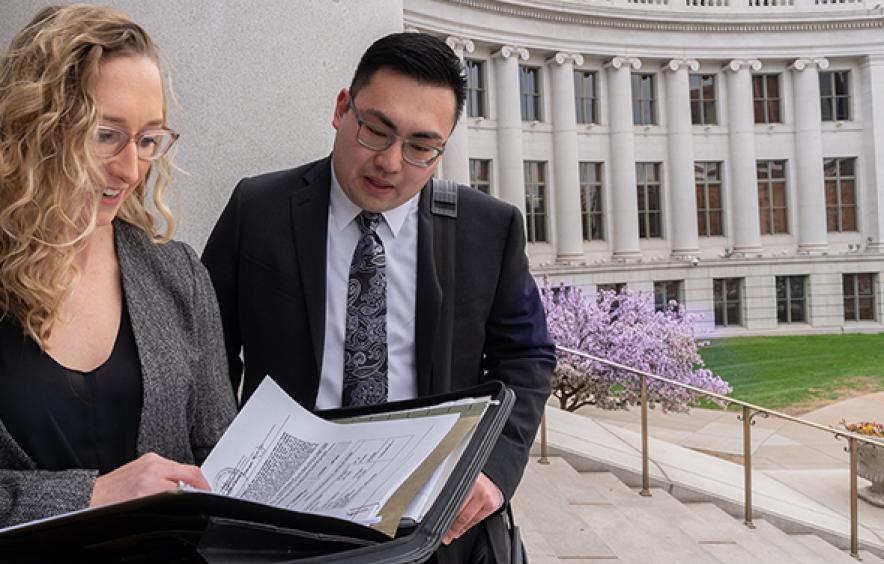What is a Judicial Clerkship?
A judicial clerkship is typically a one- to two-year assignment where you are the clerk (essentially research assistant) for a particular judge. Some judges hire law clerks on a permanent basis as “career clerks” instead of a limited term.
A judicial law clerk's work varies depending upon the judge with whom they are working. Typically, judicial law clerks review motions and briefs, research the law, and draft opinions.
At the appellate level, law clerks do a great deal of research and writing. Appellate law clerks draft memos on issues in cases before oral argument and assist judges in drafting opinions. Appellate clerks also attend oral arguments in cases on which they have assisted their judges.
Judicial law clerks working at the trial court level manage cases, draft opinions, and perform extensive legal research to resolve written pre-trial motions (e.g., motions to dismiss, summary judgment, evidentiary motions, and more). Trial court clerks also support their judges with research and procedural matters during trials. Trial level clerks work with judges in the Federal District Courts (Article III Judges and Federal Magistrate Judges), State Trial Courts, as well as tribal and administrative courts.
-
Why should I clerk?
- Prestige: Clerking for a judge is universally viewed as a valuable and prestigious position and excellent credential.
- Perspective: You will have the opportunity to view the system of justice from the other side of the bench. This will give you valuable insights into the legal system that you will carry with you throughout your career. Unless you become a judge, you may never again have this opportunity.
- Intellectually Stimulating: Clerk positions offer the opportunity to research and write about a wide variety of legal topics.
- Experience: This is an intensive period of post-graduate learning. By observing how the judicial decision-making process works, you will learn practical information about how to draft briefs and present cases effectively. Legal employers know that as a judicial clerk, you will have honed your research and writing skills.
- Enhance Job Prospects: Most law clerks meet many prospective employers during their clerkship. Legal employers value a judicial clerkship greatly.
- Build a Strong Reference: Judicial law clerks have the opportunity to earn a strong reference from a judge. When your cover letter says, "My judge suggested I contact you," you will grab employers’ attention.
- Mentorship: Judges often become life-long mentors to their law clerks. This kind of relationship can be invaluable – both personally and professionally.
- Self-Assessment: A clerkship allows you to take additional time to decide what practice area(s) you are interested in pursuing. Judicial law clerks are exposed to a wide variety of legal practice areas and often rethink long-term goals during their clerkships.
- Great Job: In a recent survey of law clerks conducted by the National Association for Law Placement (NALP), 97% stated they would gladly clerk again. Many experienced lawyers even say that their clerkship was the best job they’ve ever had. The bottom line is that clerking is a great job opportunity and a wonderful way to spend a year or two (or more) after law school.







